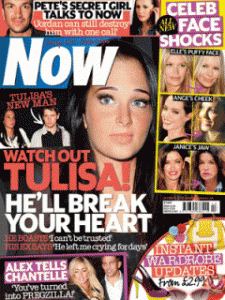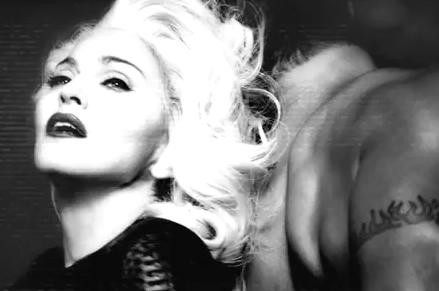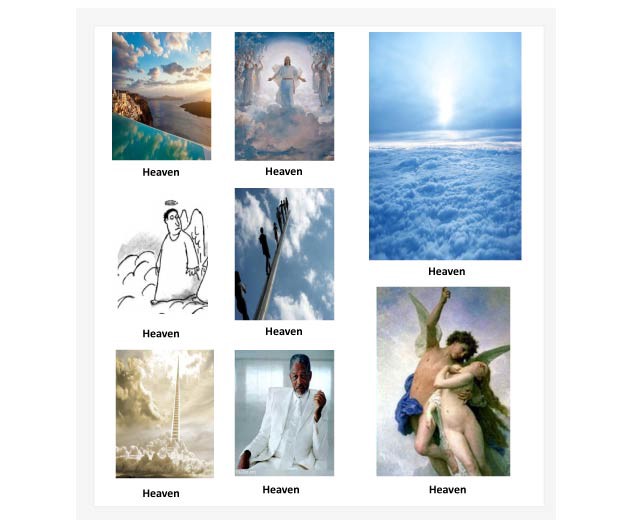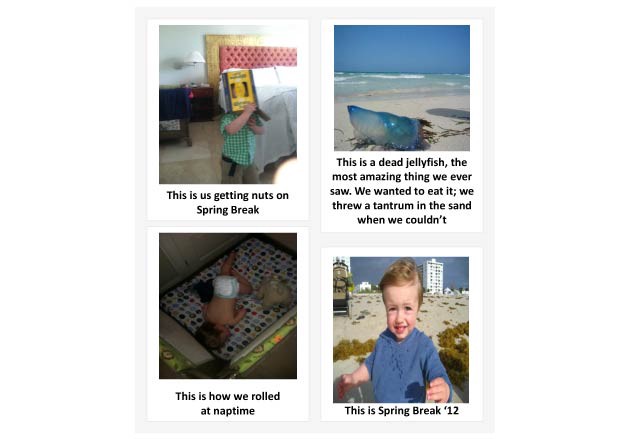The Amazing Moral Fables of Pinterest

If you’re not paying attention to the always incredible goings-on at Pinterest, some recent updates:
• Pinterest is perfect for people to find and buy things. That’s why this spammer is making a minimum of $1,000 a day, all from affiliate links. Nothing really wrong with that: affiliate links to Amazon are a good business! And so is shoving up thousands of Pinterest pics a day, with affiliate links attached, apparently. BRB, gotta get on this, hate to watch a gravy train pass me by.
• Last week, when Pinterest rolled out new terms of service, which including banning thinspiration blogs — wait, sidebar? The poor anorexic bloggers! They are to the Internet what racists are to the real world! And vice versa, right? It’s quite easy to be rewarded in public for being emaciated, and also very easy to be rewarded on the Internet for being a racist, but never the other way around. Okay, sidebar over — the company encouraged people for the first time to promote their own work. Ha, well, that makes sense, since promoting other people’s work is… copyright infringement.
• Because Pinterest has a bizarre and inexplicable auto-follow system, it makes sense that site founder Ben Silbermann was one of the most popular people on Pinterest. But as of today, Ben’s Pinterest page has disappeared, and he has a brand new one! “Starting a fresh new account to remember how new Pinterest user’s feel!” is what it says in his profile. Well, that’s one view. Here’s another, that makes more sense: “it’s pretty clear what happened here: Silbermann’s old page didn’t jibe with the site’s new terms of service. It’s less trouble to start a new page than it is to clean up the old one.” Also, currently, Ben’s “Books Worth Reading” board has zero pins. 🙁
Hail Tulisa, The Female Boss
Hail Tulisa, The Female Boss
by Emma Garman

A series dedicated to explaining Britain’s manufactured celebrities to an American audience.
When a society is as riven with conflict as today’s Britain, it takes a special kind of momentous event, the recognition of a greater enemy, to unite Tories and socialists, celebs and civilians, those who yearn for Kate Winslet’s excommunication from the planet and those who’d be content with her bleak and everlasting obscurity. So it was that last week, the nation put aside its differences and came together in support of one grievously wronged young woman: 23-year-old Tulisa, formerly of hip-hop trio N-Dubz and now a solo artist and beloved judge on Aristotelian forum of dialectical exchange “The X Factor.”
Like God sending his message of salvation via the unlikeliest channel, this resurgence of Britain’s legendary Dunkirk spirit had a surprising impetus: the online release of a six-minute cellphone video showing Tulisa engaged in, if you’ll forgive the euphemizing, an “intimate moment” with an ex-lover — who, being the assumed perpetrator of this outrage, will not be dignified here with identification. Although I will deign to observe that his stage name brings to mind a feminine hygiene product, one that you might use for those lighter days.
Mercifully, his dastardly deed was thwarted: in a rare instance of British privacy laws operating on the side of good, rather than on the side of protecting famous men’s icky philandering, Tulisa’s legal team obtained an injunction and the offending footage — briefly available to download for £3.90 — was swiftly pulled from the Internet. As Tulisa issued a heartfelt statement, condemning her ex’s betrayal and apologizing to her fans, messages of sympathy and solidarity flooded in from every direction. Guardian columnist Eva Wise hailed Tulisa as “feminism’s new hero,” while Kirk Norcross, old flame of our friend Amy Childs and “TOWIE” veteran, summed up popular sentiment with his tweet: “Well done babe u aint got to say sorry to no one!” And in a stirring demonstration that real journalism lives, the Mirror took to the streets of London to film members of the public debating that vital question: did Tulisa have anything to apologize for? Good heavens, no, was the overwhelming consensus.

But what about the most important opinion, that of “X Factor” overlord Simon Cowell, who pays Tulisa’s salary of nearly $1.5 million a year? Friday’s Sun, with a front-page headline whose punning virtuosity humbles us all, let it be known that SEX TAPE TULISA HASN’T BLOWN HER JOB. You’ll be delighted to hear that when it came to expressing his feelings on the matter, the Almighty High-Waisted One was characteristically frank: “Whoever he is, he’s a scumbag — and I’m being really conservative with my words here. It’s disgusting, repulsive. He’s embarrassed her and he’s got no right to put her in this position.” Given Cowell’s cultural immanence, the infinitude of which mere mortals can scarcely apprehend, much less replicate, we can expect said scumbag to be eternally blackballed from every last corner of polite society, as he deserves.

Before the tape’s appearance, Tulisa was blowing up, as I believe the young people say, with a career that began at the age of just eleven, when she joined a band formed by her cousin Dino “Dappy” Contostavlos and his school friend Richard “Fazer” Rawson. Performing is in Tulisa’s genes: her Irish mother, Ann Byrne, was a singer and her Greek-Cypriot father, Plato Contostavlos, played keyboards with the band Mungo Jerry, along with his brother, Dappy’s late father Byron, who played bass.
(Mungo Jerry’s best-known song, “In the Summertime,” was used in a long-running anti-drink driving commercial because of its chirpy refrain “have a drink, have a drive, go out and see what you can find.” If that wasn’t a troubling enough legacy, the song is also playing in the Wedding Crashers scene where Owen Wilson and Rachel McAdams ride bicycles through the countryside. The surviving members of the band must be relieved indeed that N-Dubz and Tulisa have replaced these unsavory associations in the public imagination.)
Despite her musical background, Tulisa — née Tula Paulinea — had anything but an indulged, carefree childhood. Her parents divorced when she was nine and her mother, with whom she lived in a one-bedroom council flat, suffered from schizoid affective disorder, a condition that causes extreme mood swings, delusions and paranoia. “I was 11 and my mum expected me to be her emotional support,” Tulisa has said, “but I didn’t really understand what that was. It was incredibly tough.”

Frequently shunted off to relatives whenever her mother was sectioned, Tulisa was a tense, withdrawn child and an unstable teenager who twice attempted suicide. “I don’t think I wanted to die,” she told interviewer Deborah Ross last year. “I was kind of like: I can’t think of any other way to deal with all this.” Almost inevitably, she turned reckless and wild, gave up on school, and fell in with a tough crowd, partly to protect herself, she says, from violent bullies. By age fifteen, she carried a knife or a baseball bat, “because of the fear of being attacked by 15 girls. This was no joke. They would get a bottle, smash it on the floor and happily stab it in your face. I didn’t want to hurt anyone, but it was my way of sticking up for myself. It was a dangerous cycle to be in.”
In time-honored fashion, music saved her: N-Dubz — the name’s a play on the London zip code where they all lived, NW1 — began regularly performing and attracting airplay on pirate radio stations. In 2007, after winning a MOBO award, the band got its first major record deal. Over the next four years they would release three platinum selling albums, sell out stadium tours, appear on the popular reality shows “Being N-Dubz” and “Being N-Dubz: America and Beyond” and inspire tearful adulation as, in the firm but fair words of one journalist, “a supermarket own-brand version of Black Eyed Peas.”

Still, you know what they say: you can take the girl out of the mean streets, but you can’t spend more than five minutes in London without becoming a material witness to a stabbing. Thus, in 2009, Tulisa was arrested with her then-fiancé, DJ Adam Bailey, following a brawl that led to a man being knifed in the stomach and Bailey charged with GBH (grievous bodily harm). Giving evidence in Bailey’s defense, Tulisa told the court how she’d feared for her life when she walked into a liquor store to find a “commotion” involving about twenty people, one of whom approached her: “All I heard was, ‘Where’s the ting? Buss it,’ which I know from 50 Cent songs means ‘Where’s the gun? Shoot it.’”
Tulisa managed to escape unharmed and immediately did what any sensible person would in the circumstances: she called her manager, Jonathan Shalit (who, random trivia, is the cousin of recently freed Israeli hostage Gilad Shalit). Questioned as to why she hadn’t called the police instead, Tulisa said: “My life is run by other people. Every move I make is controlled by somebody else. Everything gets done for me and my job is just to work.”
Whether this assertion quite tallies with Tulisa’s famous forearm tattoo, which in large cursive script proclaims her as The Female Boss, is a question of such ontological nuance as to place it beyond this column’s purview. Also, it’s generally advisable to stay on the right side of someone whose real life can be explained by gangsta rap lyrics (I know that from watching “Veronica Mars”). Suffice it to say that Tulisa, whose feisty nature has earned her the nickname “The Greek Grenade,” isn’t exactly a shrinking violet, at least judging by her frequent wrangling with “X Factor” judge Kelly Rowland — a clash of personalities that wasn’t entirely cooked up for ratings, or so an authoritative source has insisted.

Rather ironically, Tulisa’s tattoo recently embroiled her once again in hot legal waters, when official media regulator Ofcom investigated viewers’ complaints that, with the tattoo-displaying arm salute she gave the “X Factor” audience at the beginning of each show, Tulisa was unlawfully advertising her perfume, which is called The Female Boss. Yes, I know it’s tempting to wonder what particular species of lunatic gets so incensed by the idea of a teenage girl deciding to buy Tulisa’s perfume instead of, say, Katy Perry’s that they lodge a formal complaint, but for sanity’s sake, one really shouldn’t dwell on such puzzles. And to be fair, it’s not as if any of us wishes to live in a world where a televised battle for fame and riches, especially one conducted under the auspices of renowned anti-capitalist Simon Cowell, can be sullied by behavior that even hints at anything mercenary or self-serving.
So, a crack team having painstakingly established whether Tulisa’s trademark gesture “broke strict broadcasting rules on the promotion and reference of commercial products by talent,” the new year heralded not only welcome news for Tulisa, but a historic prevailing of justice that will shape legal precedent for generations to come: Ofcom ruled that The Female Boss perfume was not given “undue prominence” by her three-second tattoo-flash, which may therefore continue to light up our screens.
In case your curiosity has been piqued as to the specific bouquet of “TFB by Tulisa” — don’t be embarrassed, you’re only human — the expert nose of Glamour found that it “captures her confidence, sass and power with strong notes of sandalwood, amber and moss, while remaining undeniably feminine with floral heart notes of jasmine and rose.” We would expect nothing less.
Of course, the launch of one’s own perfume is but a preliminary to the inevitable next stage in a modern starlet’s career: a lucrative book deal. Following in the footsteps of such preeminent prose stylists as Kerry Katona and Katie Price, Tulisa has consented to write an autobiography, followed by two novels. The hotly contested auction to publish her oeuvre, which involved seven publishing houses, will have seemed to its participants the glorious culmination of why any book nerd becomes an editor in the first place: to enrich our beleaguered literary culture with precisely the caliber of ghosted celebrity tomes expected — demanded! — by supermarket chains for their discerning shoppers.
Tantalizingly, there’s no word yet on the novels’ themes or genre, but a quick glance in your columnist’s trusty crystal ball reveals gutsy heroines adorned in ghetto gold, errant criminal boyfriends and brutal adversity that proves no match for powerful dreams. Obviously, Tulisa’s autobiography will also contain all of the above, plus it promises to make waves with “some fantastically juicy behind-the-scenes X Factor gossip,” as well as give the 411 on her relationship with former bandmate Fazer. After a tumultuous 18-month romance, the lovely couple broke up in January to the equal commiseration and jubilation of “N-Dublets,” as their loyal fans were affectionately known.

Since her split from Fazer, Tulisa has been seeing an actor, Jack O’Connell, who starred in the TV show “Skins.” Jack’s reputation as a scoundrel has prompted several concerned journalists, clearly summoning the prognosticative superpowers they learned at tabloid hack school, to inform Tulisa that her heart will imminently be broken, because Jack has “commitment issues.” However, should Tulisa for some inexplicable reason fail to heed this well-meaning counsel, and as a result is hurt by her new beau’s allegedly roving eye, she can at least take solace in the fact that her most trifling sideline, acting, will soon eclipse his entire career. She’s had roles in two Britflicks: Big Fat Gypsy Gangster and Demons Never Die, and her performance in the latter so impressed the movie’s producer, Idris Elba of “The Wire,” that he’s offered her a part alongside Charlize Theron in his upcoming project Swift, the tale of a washed-up sports agent seeking redemption.
Never fear, though: music remains Tulisa’s primary focus, and she’s been hard at work on her debut solo album with producers like The-Dream. (During a break from the studio, Tulisa and The-Dream reportedly recharged their batteries at a strip club in Miami, a rite of passage that, according to a piece of US legislation known as the Aguilera Act, all young female celebrities are legally mandated to undergo.) Her first single from the album, “We Are Young,” dropped on Friday to mixed reviews, as well as a few insinuations that the timing of the song’s release is so convenient, and the lyrics — “I make mistakes that I learn from/Because I’m young” — so apt, that the sex tape brouhaha was an orchestrated stunt.
It’s an accusation that Tulisa strenuously denies, and as if to demonstrate her innocence, she’s now suing the man in the video for £100,000, claiming breach of confidence and privacy. Jaded commentators might also care to remember that Tulisa once turned down £250,000 to appear in Playboy and has never done a bikini or underwear shoot, placing her in a miniscule minority among her ilk. It’s certainly a sad indictment of modern attitudes when a humiliating public betrayal is interpreted as a calculated career move. Naturally, the blame for this sits squarely on the weaves of Paris and Kim K, rounding out the rap sheet of manifold crimes against humanity — talking in a baby voice, setting back feminism decades, being friends with Joe Francis — for which they’ll be assassinated come the revolution.
Even if, through no intention of her own, the scandal increases Tulisa’s global fame, it will still end up a dusty footnote to her meteoric ascent, rather than its defining feature. While N-Dubz failed to break America after briefly signing to Def Jam, the label retained the option to launch Tulisa’s solo career stateside and is now eager to do so, which ought to strike fear into the hearts of Rihanna, Katy, Ke$ha et al. The self-described “most famous chav in the UK” is not only younger, steelier and a better singer than any of them, she can calmly execute a bloodless yet exquisitely choreographed feud with an erstwhile member of Destiny’s Child. In these uncertain times, isn’t that a talent we should all get behind?
Previously: Roman Abramovich and Kate Middleton
Emma Garman no longer lives in her native UK, but she still watches lots of its TV. She’s also on Twitter.
Rammellzee On Jean-Michel Basquiat, And Fixing Flanges On Oil Tankers With Underwater Welding...
Rammellzee On Jean-Michel Basquiat, And Fixing Flanges On Oil Tankers With Underwater Welding Torches, And Sharks And Like, The Universe

“Jean-Michel only wanted drugs, sex, and rock n’ roll. He didn’t have no science. He didn’t know what to talk to no critics and if he wanted to talk he didn’t have enough to say. When I talk everybody tells me to be quiet. [laughs] Do you know why? Because I have information that comes to you either from [science], or it’s from something that comes from other people — from my peer group. Whether it came down to rap music, hip-hop music — which is slightly different, or whether it comes to break dancing. After the fight and everything like that then everybody tried to say I was his friend. Why did I get in a fight with my friend? You don’t wanna be around somebody that thinks they know it all because these fool light dwellers is giving you money. You know? Because that’s what they were. They were giving [Basquiat] a lot of money to keep a certain art-form that I considered to be graffiti, abstract painting. Where it deals with letters on the side, cross out this over there. That’s graffiti to me. Because what I do is the burner. An aerodynamic aeronautical system of the letter flying on a rolling page in a wind tunnel known as the transit system. And that’s all that happens. A letter moves backwards with its own wings, it gained the wheels off the bottom of the train. And the page became a car with a year number on it. And the gallery was rollin’. Nobody liked to hear that because it was too well put together. They want you to be abstract and sit there and say nothing.”
— The hip-hop historians at ego trip have published, for the first time, an interview they did with graffiti artist/sculptor/rap-music pioneer Rammellzee in 1999. Rammellzee died two years ago, and did not like Jean-Michel Basqiuat, with whom he collaborated on the classic 1983 track “Beat Bop.” There’s an exhibition of Rammellzee’s work up now at the Suzanne Geiss Company gallery in Soho. And if you’re interested in graffiti or other types of visual art or rap music or New York City in the ’80s or, really, anything else, you should read this interview.
Now Is The Perfect Time To Unfollow All Your Insecure Friends
“Twitter users are being affected by a bug which is causing them to ‘unfollow’ fellow tweeters without their permission. The microblogging company has now admitted that there is a problem. A Twitter spokesman said: ‘This is a bug, and our team is working to fix it.’ The bug is causing Twitter users to randomly unfollow people without account holders’ prior consent or knowledge. Twitter has advised affected people to visit its support page and go to fellow tweeters’ profile pages to check whether they are still following them or not.”
Pretend You're Happy And Live Longer

“We have observed that when people are negative about past events in their life, they also have a pessimist or fatalistic attitude towards current events. This generates greater problems in their relationships and these people present worse quality of life indicators.”
— University of Granada researcher Cristián Oyanadel discusses a study showing that a negative outlook on life causes health problems and depression, which doesn’t surprise me one bit, because when you think about life — that endless procession of sorrow and despair and false hope and wasted effort, the way we inexplicably raise ourselves up in the morning to put ourselves through another day of boredom at best, tragedy if we’re less lucky, all for a bunch of useless trinkets that can never really keep us from forgetting the fact that at the end we, and everyone we have somehow convinced ourselves we care for, will die, often in painful and preventable ways, and all the suffering we have undergone since we were very small until that last day of our existence will have been for nothing but to serve the collection of chemicals that keeps us together and eventually puts us in the ground — it makes perfect sense that the simple acknowledgment of its cruelties would in fact make it even more brutal. Also, I don’t feel so good.
Madonna Trapped Inside Hall of Mirror Madonnas

This self-tribute is so awkwardly put together, though, that it comes off like a celebrity shouting to someone who doesn’t recognize her, “Do you know who I am?” What is mildly shocking about it, though, is how hamfisted “MDNA” sounds at times. There are audible clashes between various pieces of the mix that just sound bad; Madonna’s rapping on “I Don’t Give A,” for example, sounds like a “Saturday Night Live” parody of a Madonna rap song until Nicki Minaj comes in…. “Superstar” is a plainspoken love song with an instantly memorable melody, but something about its production brings to mind the Education Connection commercials with the rapping waitress, or perhaps a commercial for a new line of tampons. And then there’s “Gang Bang,” the five-and-a-half-minute slow-burn revenge fantasia that borrows liberally from Nancy Sinatra’s “Bang Bang” (take that, Lana Del Rey!) and manages to incorporate both a wobbling dubstep drop and Madonna yelling “Drive, bitch!” in a way that brings to mind her work in Shanghai Surprise and Swept Away. (That particular homage is probably unintentional.)
Eric Lowen, 1951-2012
David Eric Lowen, co-writer of Pat Benatar’s ubiquitous hit “We Belong,” has died at the age of 60. Now that song is going to be in my head all day. Like pretty much every other day, I guess.
Soothe Yourself With The Ocean's Swirl
It is way too late in the week for it to only be Wednesday, right? If you’re having the same kind of morning I am, this will help: “NASA Scientific Visualization Studio assembled this remarkable animation of the surface currents of our oceans. It’s called Perpetual Ocean, and the full work is 20 minutes of HD video, assembled from a huge amount of satellite, on location, and computational data generated by ECCO2 (Estimating the Circulation and Climate of the Ocean, Phase 2)…. What you’re looking at is the surface current flow (not anything deeper) of oceans around the world, recorded from 2006 to 2007. The white lines are the currents, and the darker blue colors of the water represent bathymetry (the fancy word for misnomer ‘ocean topography’).” There are more of these here. Take ’em for a spin, they will totally improve your mood.
Pinterest And The Perfect Picture

Here are some libraries on Pinterest: leather couches, wraparound staircases, hidden doors within the shelves. And then here is my personal library: crammed into and around a small bookshelf. My 20-month-old son regularly pulls books off the shelves and buries them beneath the couch, like a particularly nerdish squirrel. I’d like a hidden door also, but this is my library and this is my life.

Beautiful photography fuels Pinterest. The photos people choose, so gorgeously lit, are to real life what images of heaven used to be — harps, people cavorting on clouds, giving the illusion of a perfect and inclusive afterlife.
Heaven — or as this writer observed, “like the great, white, suburban dreamscape of the 1950s.”
My wife and I recently went on vacation with our son during what was Spring Break for many colleges. Before departing we viewed images of the hotel and destination, and it reminded us what Spring Break was like in our twenties. We enjoyed our vacation, but the photographs are not pin-able by most standards because they do not represent what Spring Break is supposed to look like.

I haven’t been able to muster the zeal so many others have for Pinterest. It seems complicated arranging all those photographs into categories, all that Internet minutia waiting to be properly pinned and pinboarded and re-pinned and liked and followed. Between Twitter and LinkedIn, I have my fill of imaginary friends; I have no room for an obsessive-compulsive subset. But it’s not the obsessive organizing I find curious; it’s the obsessive organizing of impersonal photographs.


The purpose of a photograph, the ones I keep in old boxes that manage to stick with me from apartment to apartment and closet to closet, is to render up nostalgia, of what was happening in my life at that time. I don’t want to digitally pin them into organized categories; I like them messy and creased and in a state of visual anarchy. I want my photos from the 80s to carouse with the photos from the 90s; I want the photo from my wife’s favorite day to accidentally stick to 12-year-old me toting a fresh cast; I want my cross-country traveler to mingle with my son’s one-year-old self in a hat that will embarrass him once he’s old enough to consider family photos un-cool. There is no such thing as a perfect picture regardless of how pretty they look sorted into pinboards. If it comes without flaws, it’s lying about something.
Previously: The DIY Office Exorcism
Jon Methven is the author of This Is Your Captain Speaking, due out in 2012 by Simon & Schuster. He can be reached here, or follow him on Twitter @jonmethven.
